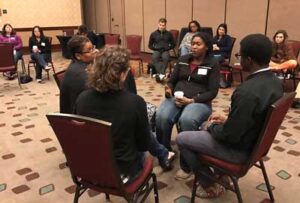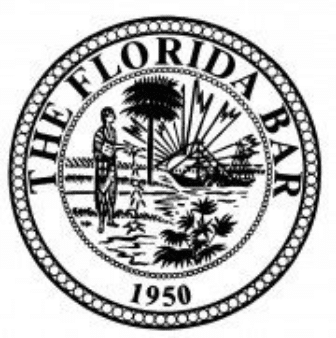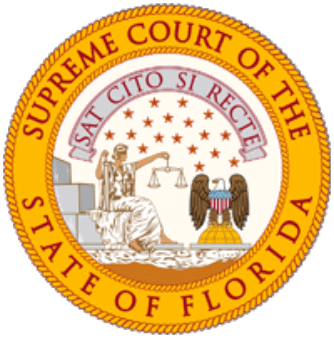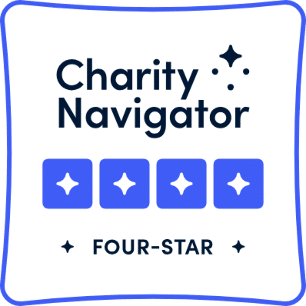
by Stacey Singer DeLoye
More than two dozen legal aid attorneys from all over Florida recently spent several months learning about structural racism, inherent bias and the law, as participants in Florida’s inaugural Racial Justice Fellowship, a training program spurred by the Sargent Shriver National Center on Poverty Law and supported by The Florida Bar Foundation.
In the process, the 27 public interest lawyers built a community of their own, said Alana Greer, co-director of the Community Justice Project in Miami, who helped facilitate the fellowship.
The fellowship’s goal was to help attorneys play a role in alleviating poverty and discrimination by focusing on the root causes of bias and racial injustice. A key takeaway was the value of building relationships in the neighborhoods and communities they serve, said Florida Legal Services Executive Director Christopher Jones. If communities come to view their legal services office in much the way a business sees its general counsel — as a go-to source for advice and information — legal services can help them prevent problems and address them before the crisis stage, he said.
In the traditional model of legal services, clients make the first contact, said Natalie Maxwell, an attorney with Florida Legal Services who helped lead the fellowship training. In the midst of a crisis with housing, employment, family, immigration status or finances, someone tells them to call legal services. At that stage, it can be difficult to help them navigate their difficulties, she said.
Educating people about their legal rights and resources and empowering them to address their issues from a position of strength can be more effective than reacting to crises, she said.
“We found over and over again this work takes time, it takes energy, but at the end of the day when you are taking direction from your clients, from your community, you are getting to solutions you may never have thought of before,” Greer said.
Maxwell and Jones brought the training program to Florida after participating in the Shriver Center’s Racial Justice Training Institute. Florida retains lingering segregation-era structural discrimination and pockets of overt white supremacist activity that continue to pollute not only the criminal justice system, but housing, education and workplaces, and Florida institutions have been slower to acknowledge and confront this than in some other parts of the country, Jones said.
“Whether you look at our disenfranchisement in Florida, our incarceration rate, it is hard to argue that Florida doesn’t have some really heavy history with this stuff,” Jones said. “In many ways Florida hasn’t had to confront its race issues in the forthright way that other deep-South states have.”
Maxwell said the training has helped her approach her work from new angles. She handles many housing and landlord-tenant cases. When a client was having problems with a property manager, she decided to investigate whether those problems were widespread in a particular complex. They were. She worked with attorneys at Community Legal Services of Mid-Florida to provide education and outreach to the impacted community so that the renters could more successfully advocate for their needs.. The owner replaced the property manager with someone more collaborative.
“Now I get invited to community meetings to discuss legal rights they may not know they had with regards to housing and zoning discrimination,” Maxwell said. “In legal services we are constantly trying to do more with less, and this is one way we’re doing that.”
The Florida Fellowship began as the Shriver Center’s training did, asking participants to take the Harvard Implicit Association Test, which helps people detect their own unconscious bias. Participants are shown a rapid series of images of faces and descriptive words, then asked to quickly categorize them as “good” or “bad,” “European American” or “African American.” The degree of hesitation before answers may indicate implicit bias, according to the test’s developers. It offers a controversial and eye-opening conversation starter for the seminars, Jones said.
The sessions began with a first meeting in December, unfolding against the backdrop of the election and inauguration of President Donald Trump, and amid a national discussion about race, policing and “Black Lives Matter.” It certainly brought a sense of immediacy and relevance to the discussions, Jones said. But these issues have always been relevant, he added.
“At first you thought, ‘Woah our timing is really good.’ And then you realize, it’s not our timing, it’s that this is a constant issue,” he said.
Going forward, participants in this fellowship are incorporating many of the ideas of community outreach into their practice, and also maintaining the community they’ve created, Greer said.
“I think creating these kinds of communities where people can lean on each other when times get tough is really vital,” Greer said. “We really hope it’s something that can catch fire, so more and more folks are going to be talking about these issues, together.”




